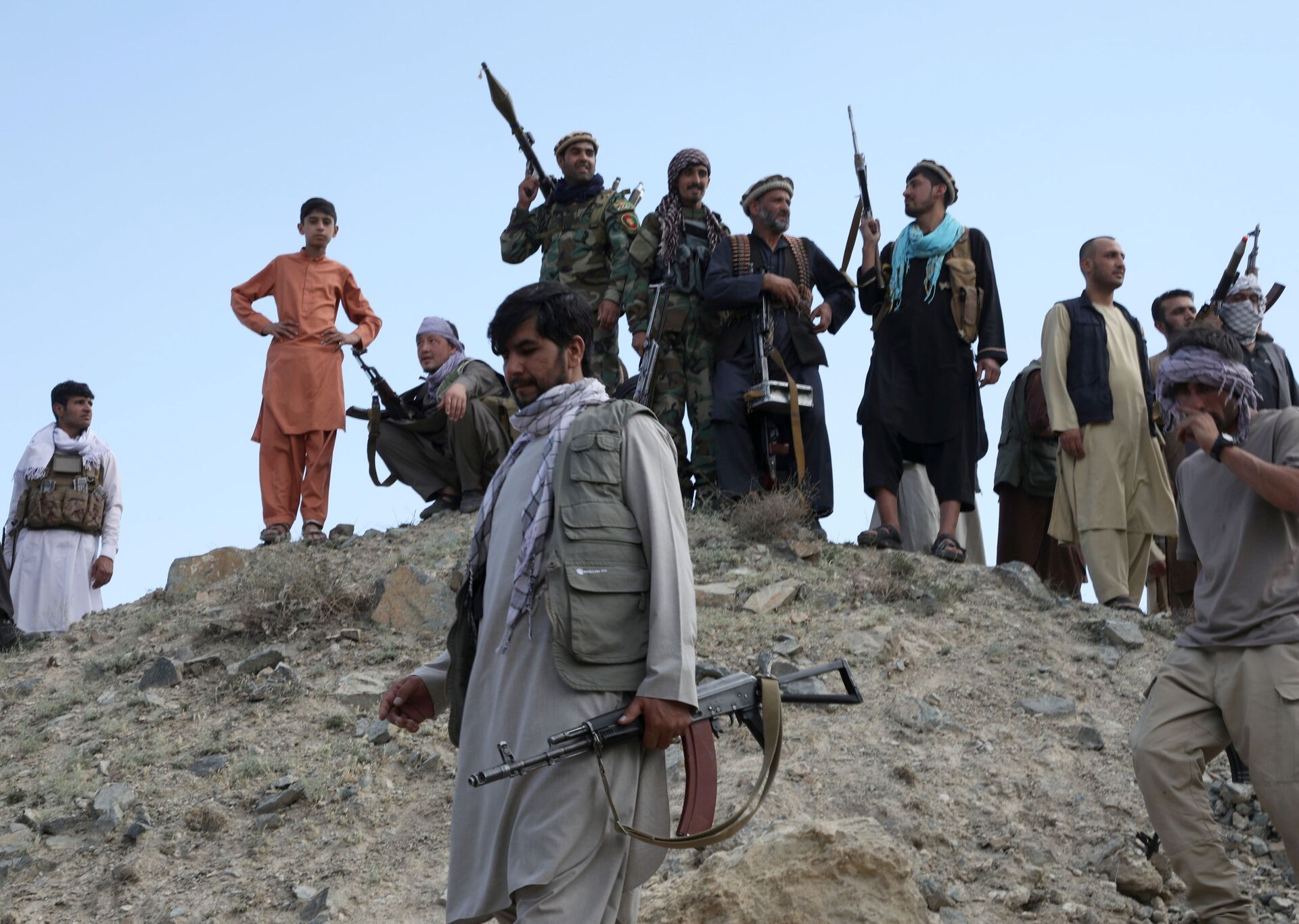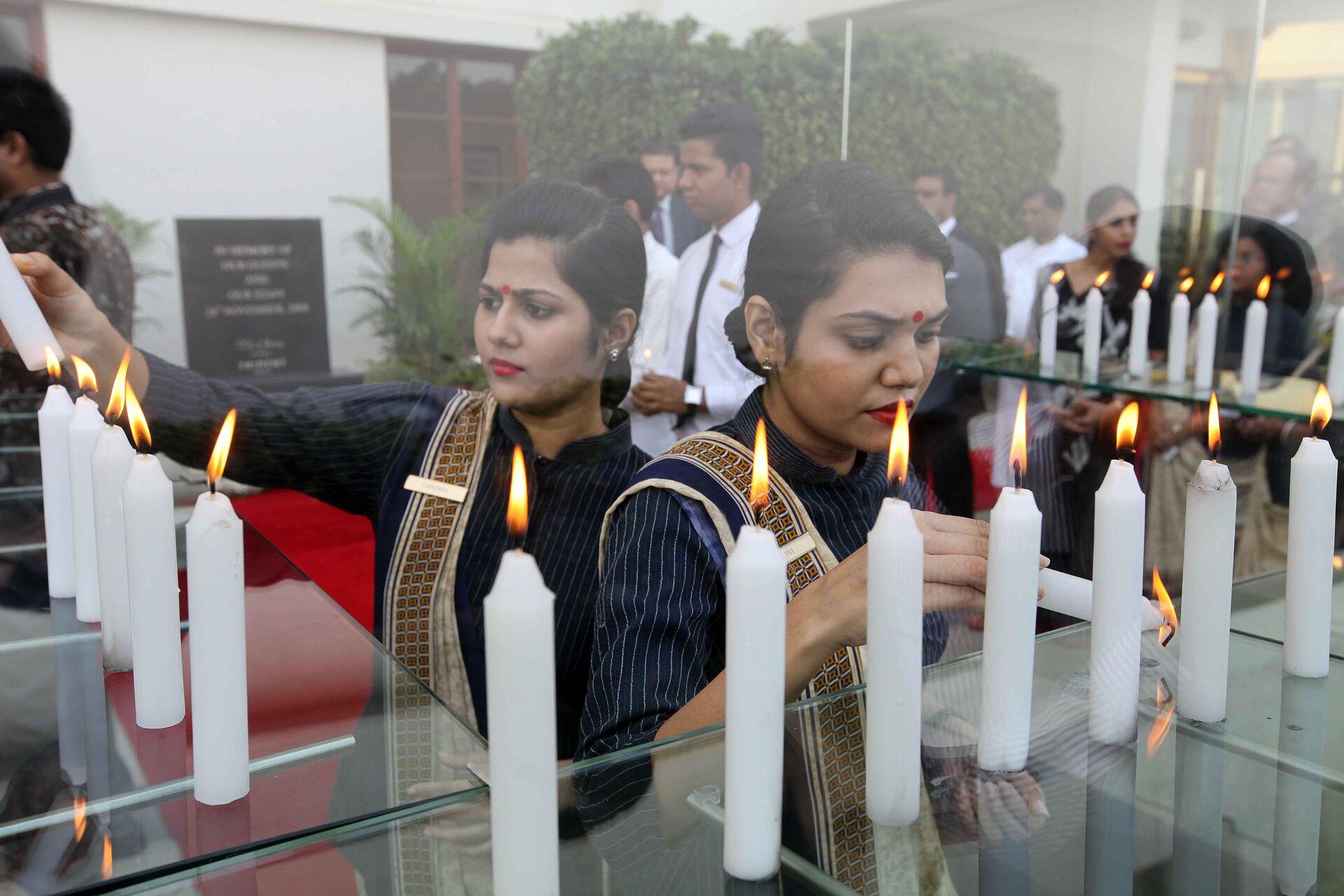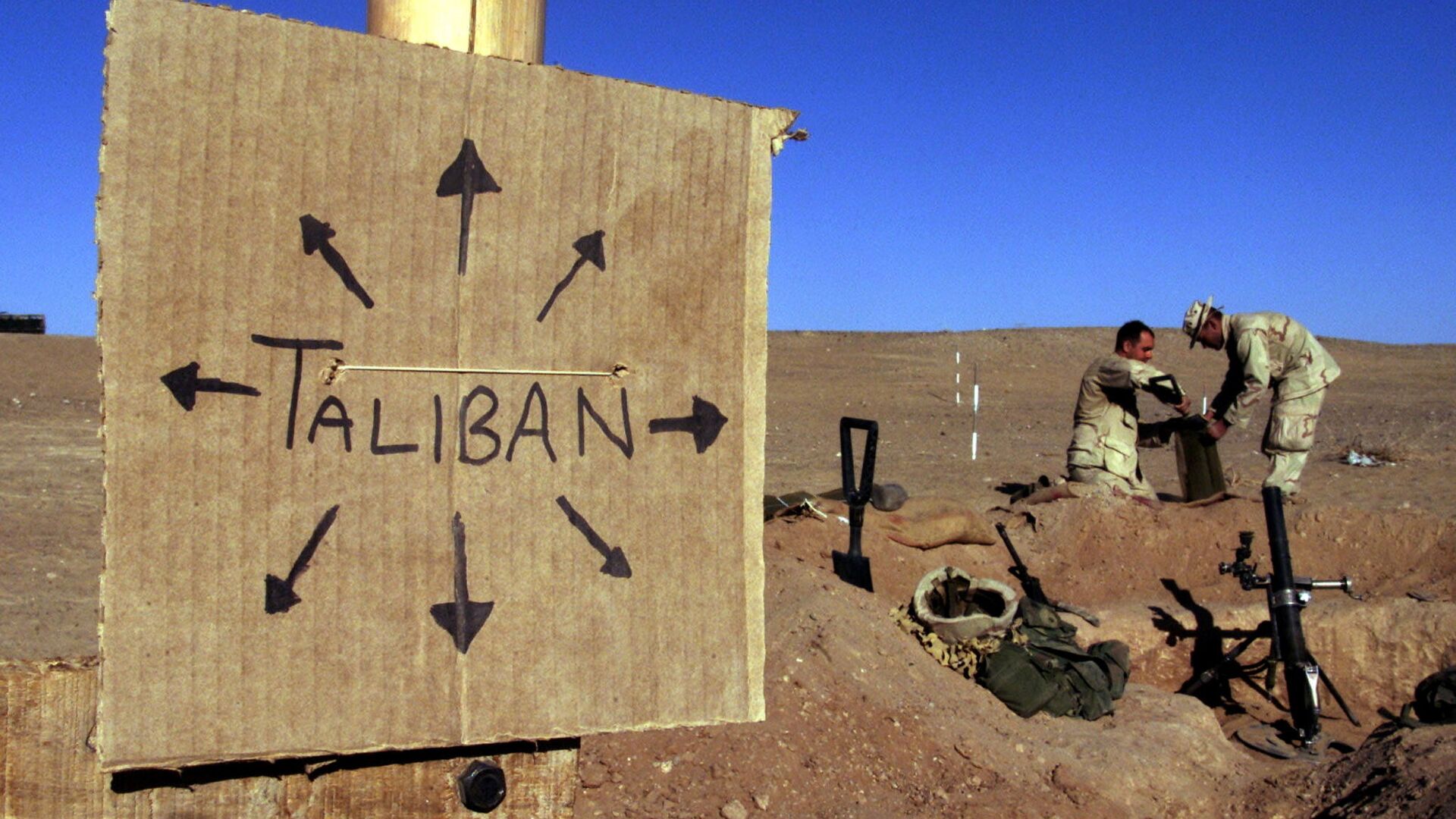Afghanistan’s Ambassador to India Farid Mamundzay told Sputnik in an interview that the Taliban can’t be trusted as the Islamist insurgent group continues to maintain ties to many of the 20 terrorist organisations operating out of Afghanistan.
The diplomat's assessment of the current security situation comes against the backdrop of news reports about talks between India and the Taliban. While the Indian foreign ministry has so far refused to confirm that it is holding talks with the Taliban, a senior Qatar envoy recently admitted that Indian officials were “quietly” travelling to Doha to hold talks with the political leadership of the insurgent group.
The Afghan envoy spoke about the current security situation in Afghanistan and Kabul’s expectations from New Delhi after foreign troops exit the region.
Sputnik: Do you believe that Kabul would fall to the Taliban within six months of foreign troops leaving the country, as predicted by US intelligence?
Mamundzay: The internal security situation in Afghanistan is intense. Our security forces are doing a great job in protecting districts, cities and villages across the country. They are of course paying a heavy price for it.
We don’t expect the Taliban or any other terrorist group to take over Kabul in six or 12 months. We don’t think it is a realistic assessment. We have introduced changes to our security sector in recent weeks. We have very capable people who are in charge of our security forces and security systems.
Given their leadership and experience, they are capable of taking on the security challenges in the country.

Sputnik: Does Afghanistan feel that India and other countries in the region could do more for Afghanistan, perhaps by assuming a greater security role once the foreign troops exit?
Mamundzay: India is an important partner and has played a very important role in the redevelopment and rehabilitation process of Afghanistan over the last 20 years. India has always stood by the Afghan people in difficult times. It has provided us with security equipment and other forms of (humanitarian) assistance.
What we seek from India is that it supports the will of the Afghan people. We expect India to support us in preserving the gains of the last 20 years. Preserve the democratic institutions and democratic processes… We share these same values with India.
India’s role in the Afghan peace process is important. As a regional power, we want India to be part of all those forums where the Afghan peace process is being discussed. In fact, we seek the support of all those countries who are involved in the peace process to give India its rightful place.
Sputnik: How do you view reports of India opening a dialogue with the Taliban? Do you think holding talks with them affords them legitimacy?
Mamundzay: We are not aware of any such talks. We can’t confirm or verify that. But what is important is that India has legitimate security concerns.
The Taliban is an organisation which supports terrorist outlets that target India. They target Indian interests. The Taliban supports terror groups which were involved in 26/11 Mumbai terror attacks. The terror outfits (supported by the Taliban) were involved in attacking the Indian Parliament (2001). They were behind the Pulwama (2019) and the Pathankot (2016) terror attacks.

Sputnik: A Taliban spokesperson recently said that the Kashmir issue is India’s internal affair, calling for good relations with all the countries of the region. Can they be trusted on these assurances?
Mamundzay: Well, we in the Afghan government believe that the mindset of the senior Taliban leadership hasn’t changed. They still believe in taking power through the use of violence.
A recent United Nations Security Council (UNSC) report stated that the Taliban hasn’t cut ties with Al-Qaeda and other international terrorist groups. There are more than 20 terrorist organisations operating in Afghanistan and most of them are supported by the Taliban. So, those ties are of concern to us, to the Afghan people, to the countries in the region and internationally.
We don’t think that the Taliban have changed. In order to fully integrate into the Afghan society, they must cut ties with terrorist organisations. Secondly, they must change the mindset that power could be acquired through violence, through war and force.
Sputnik: Pakistan’s foreign minister has expressed reservations over India’s involvement in Afghanistan, arguing that New Delhi has used Afghan territory to stage terror attacks against the China-Pakistan Economic Corridor projects. How would you react to that?
Mamundzay: As an independent and sovereign country, it is our right to choose our friends and strategic allies. India has been a dear friend and a strategic partner for us. The people of Afghanistan look up to India as a great friend. And no country should have a problem with that.
Pakistan is our neighbour and we want to have good relations with Pakistan as well. And if you look at trade between Afghanistan and India, 70 percent of it takes place through Pakistan. So, through development and regional connectivity, we can (economically) transform the neighbourhood and the entire region.
We need to change the outlook and the mindset that presently exists. Let ‘meaningful peace’ (not based on coercion of use of force) be given a chance to transform the region.


